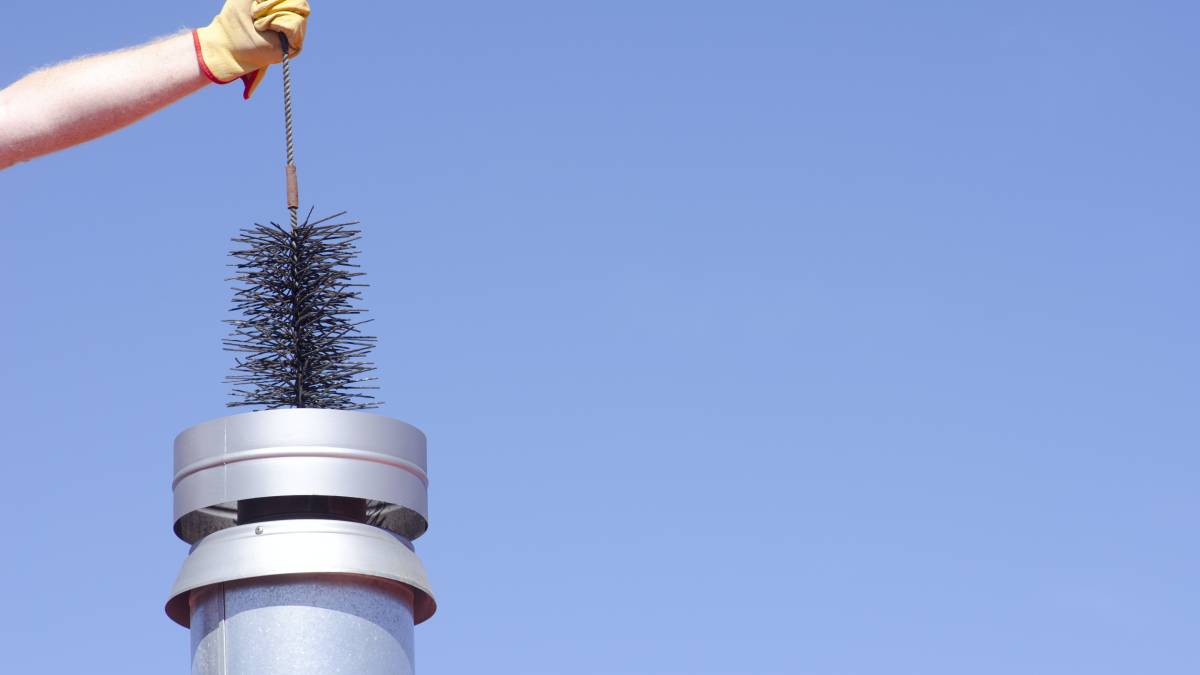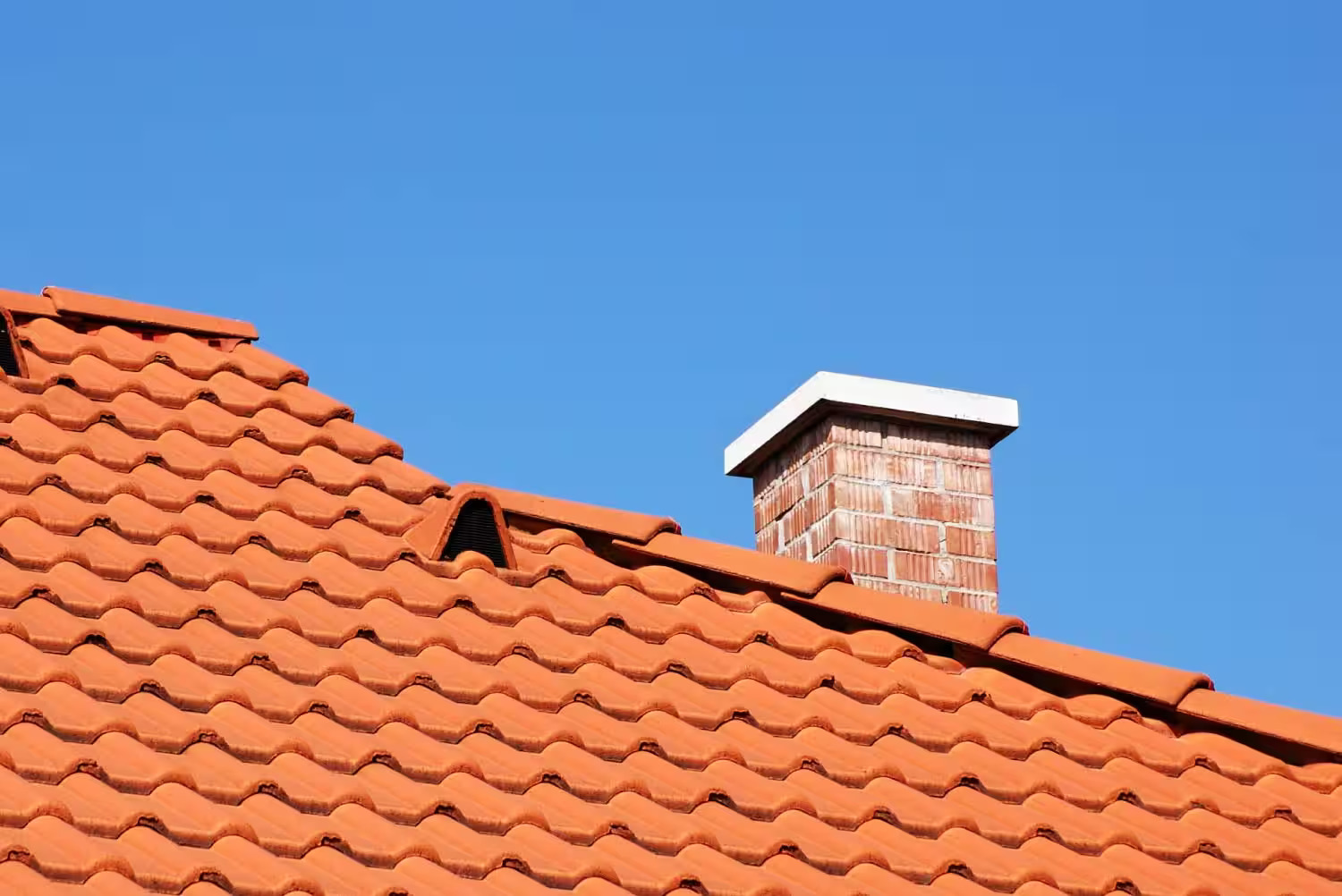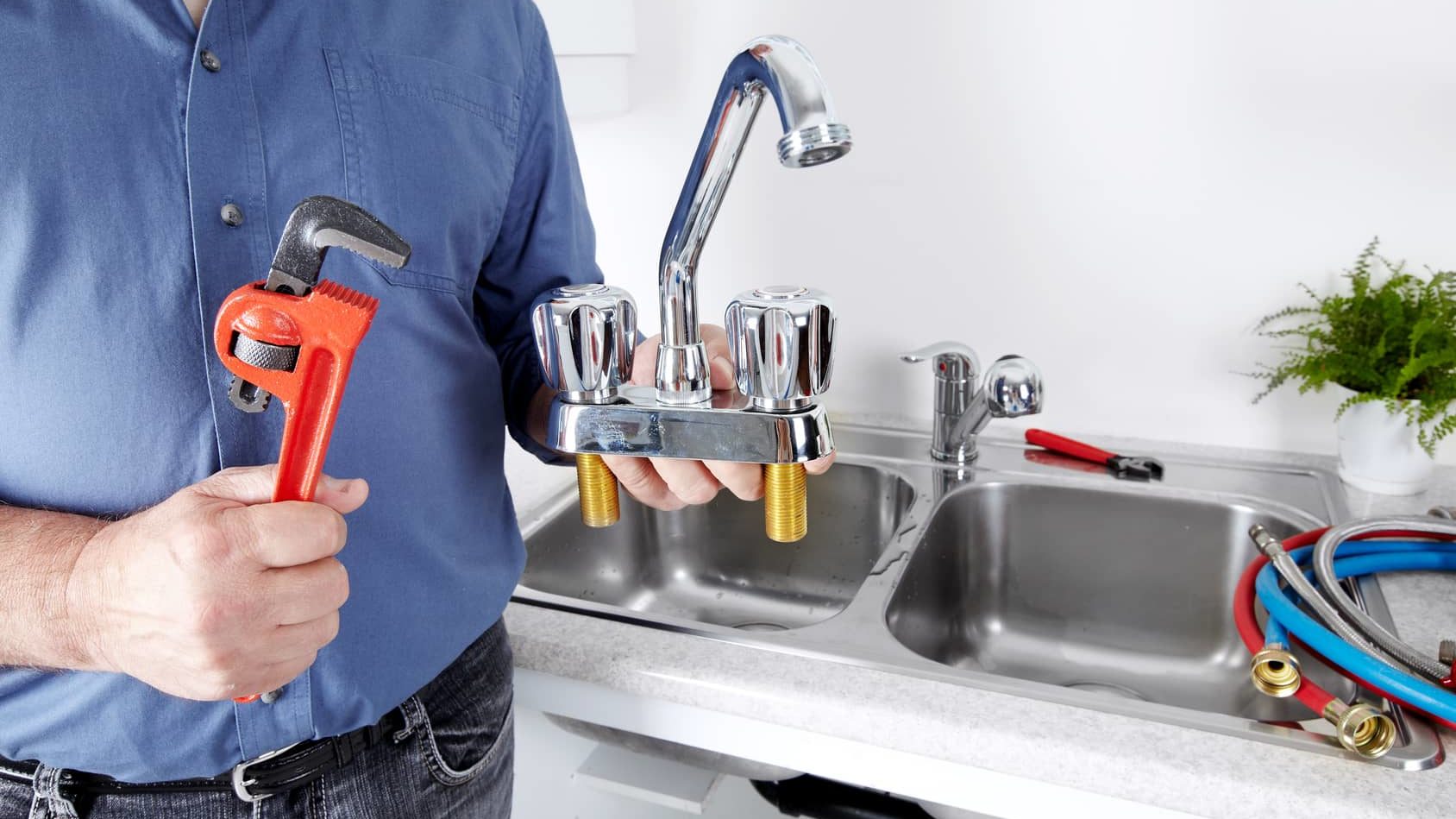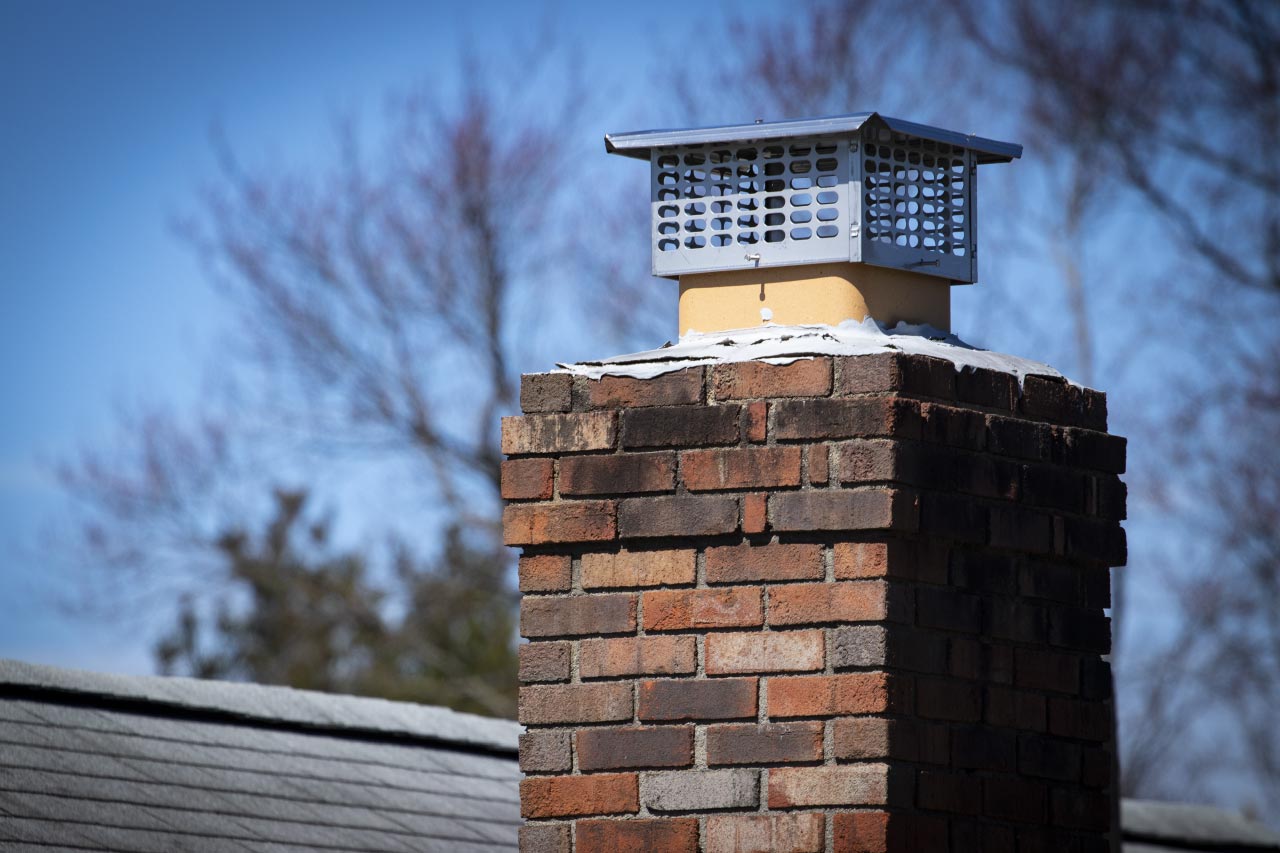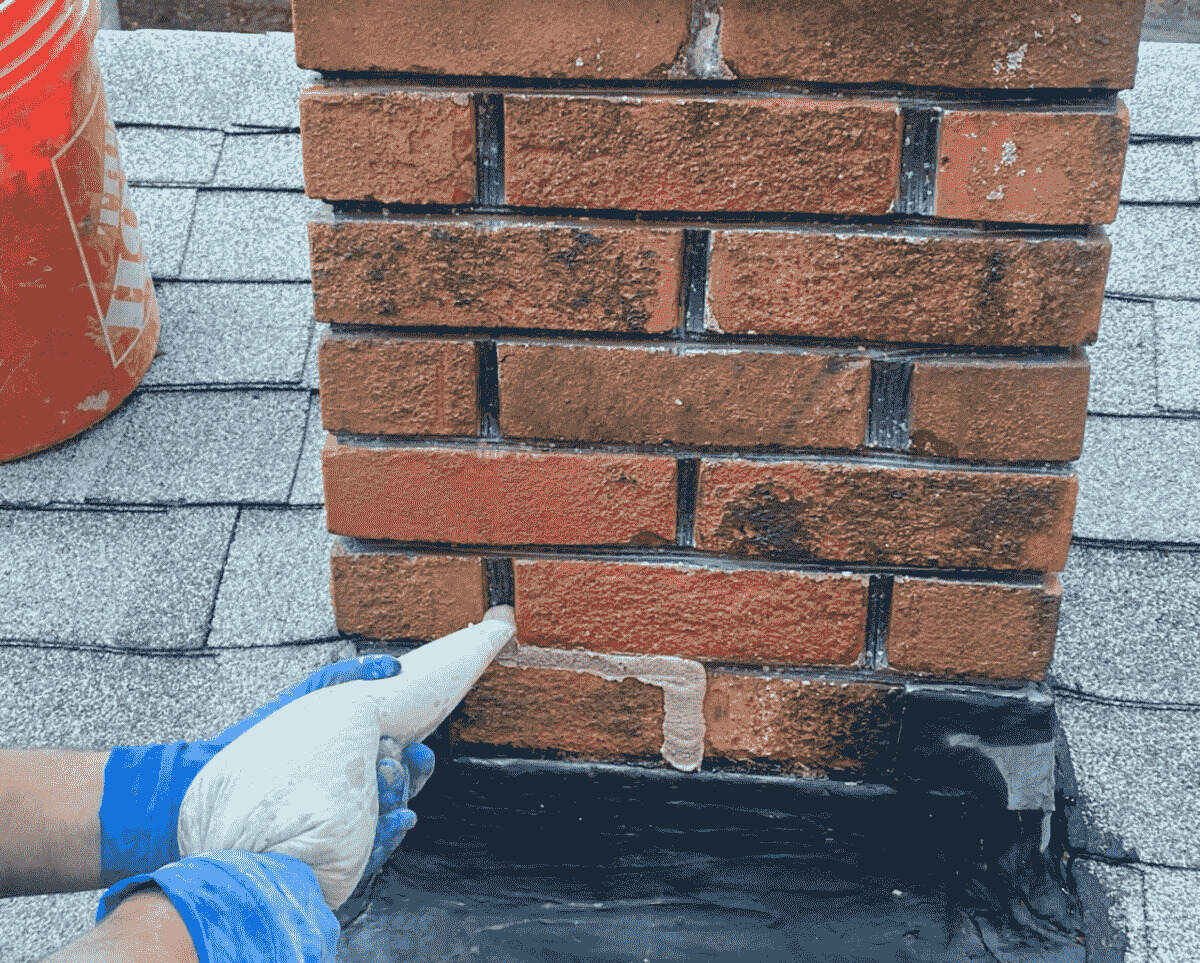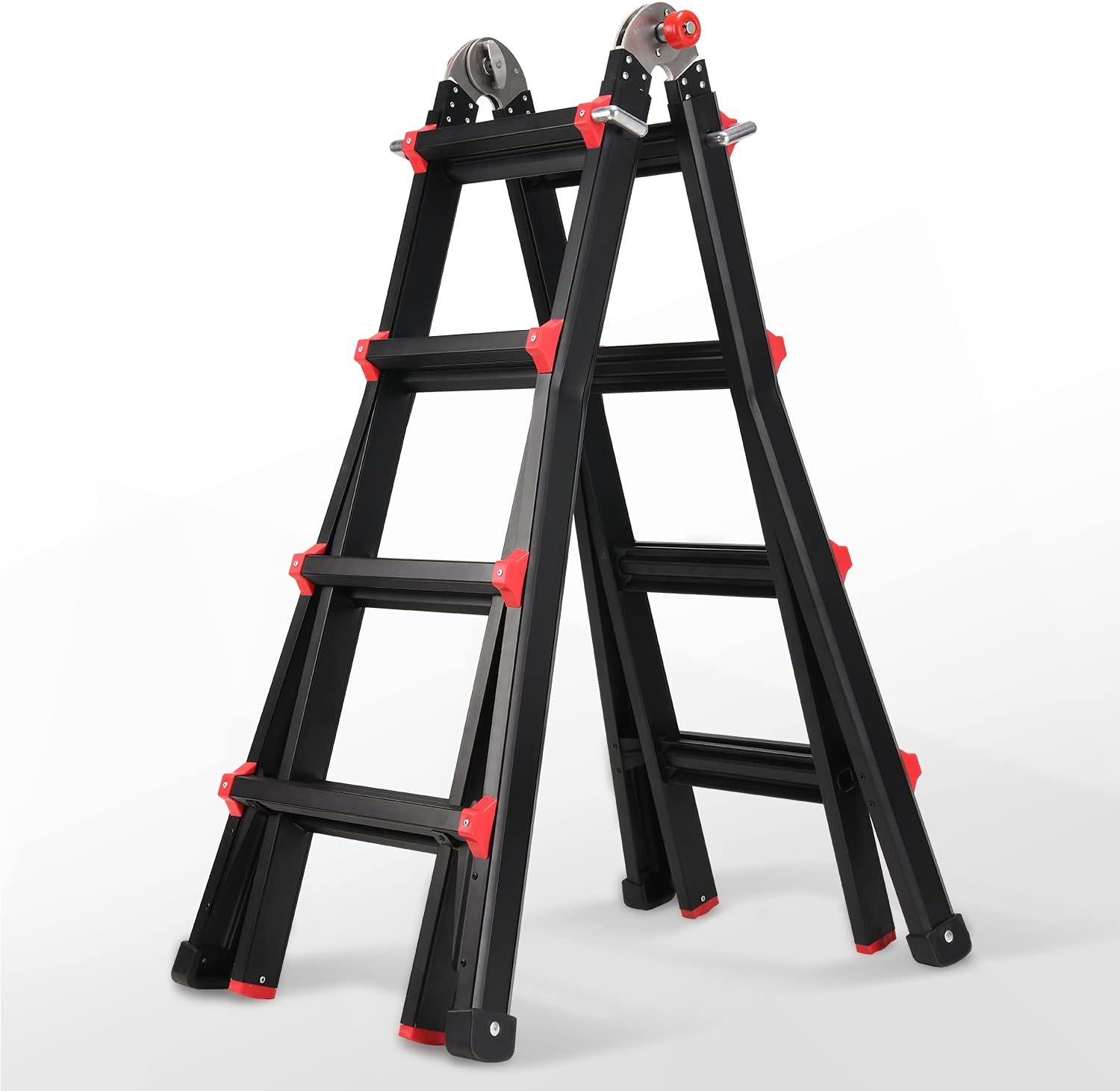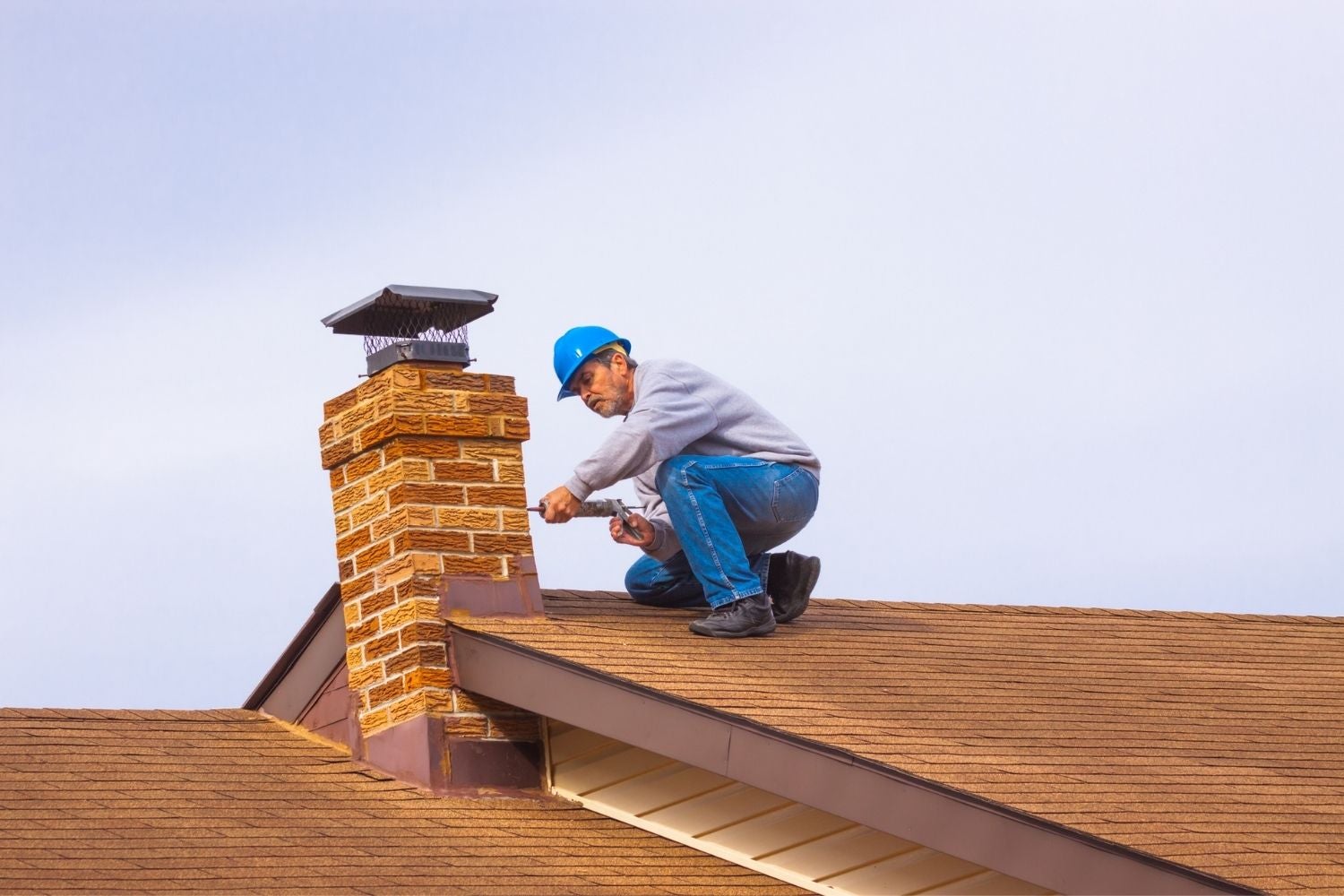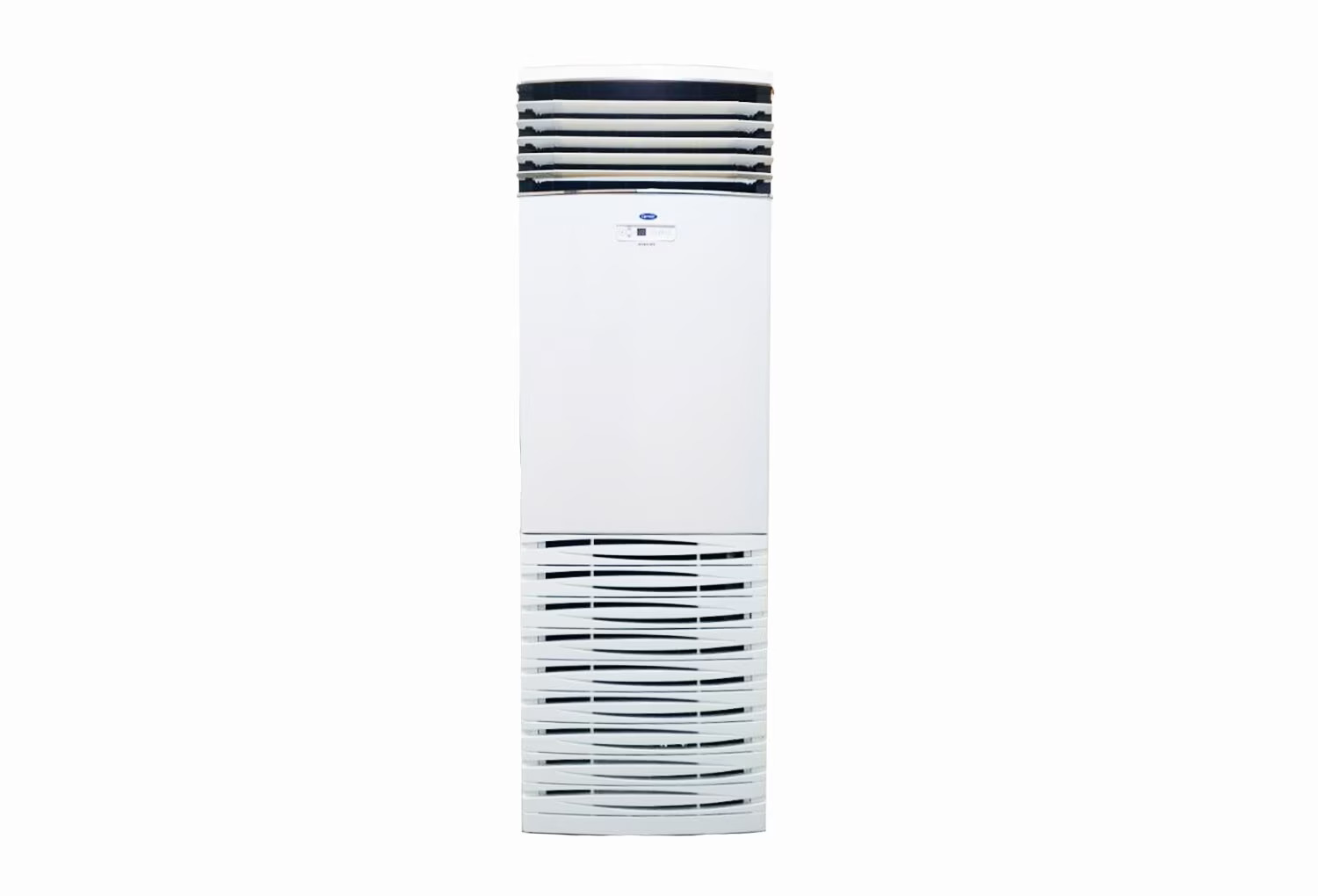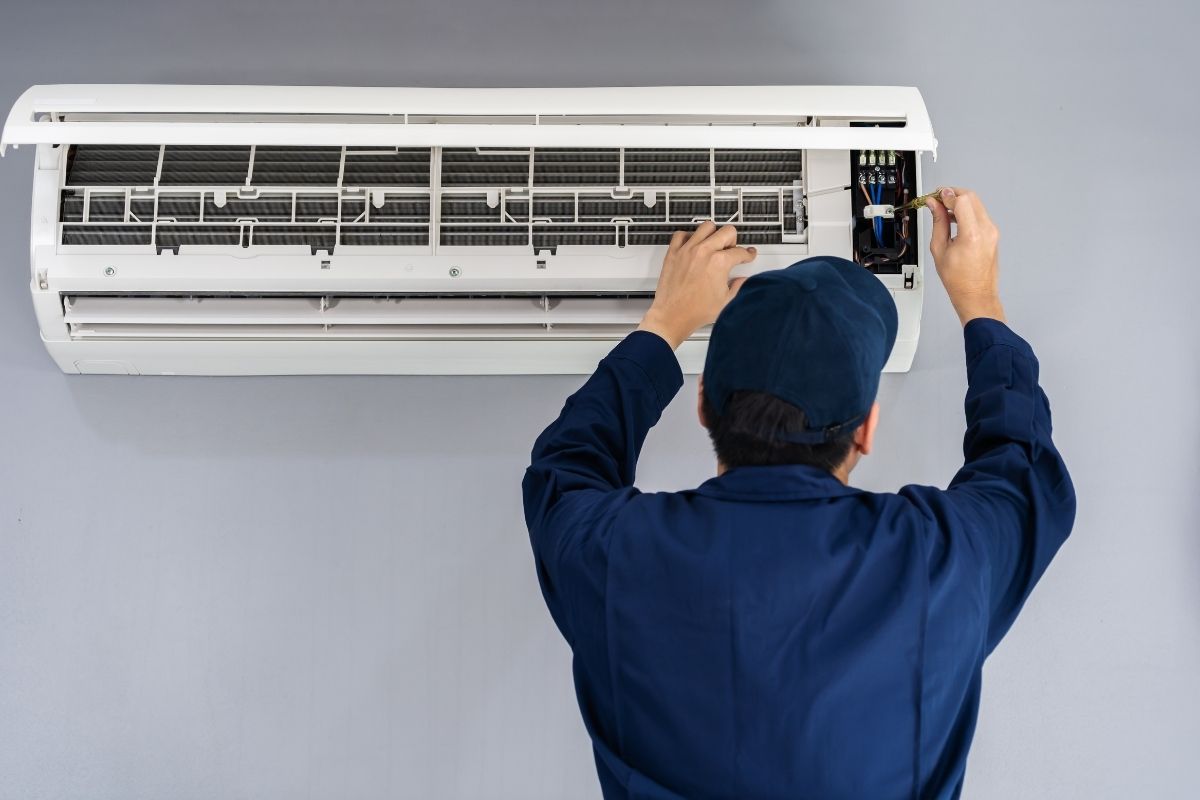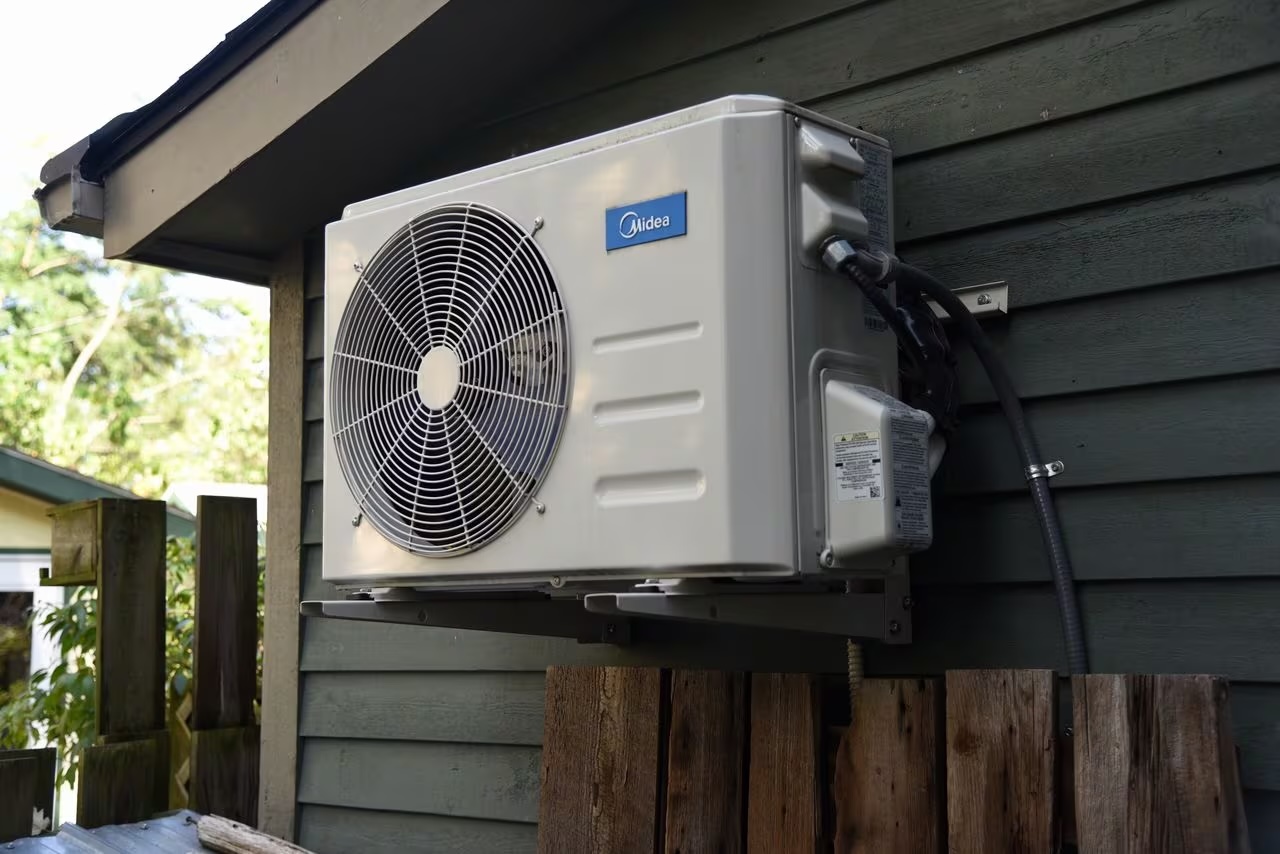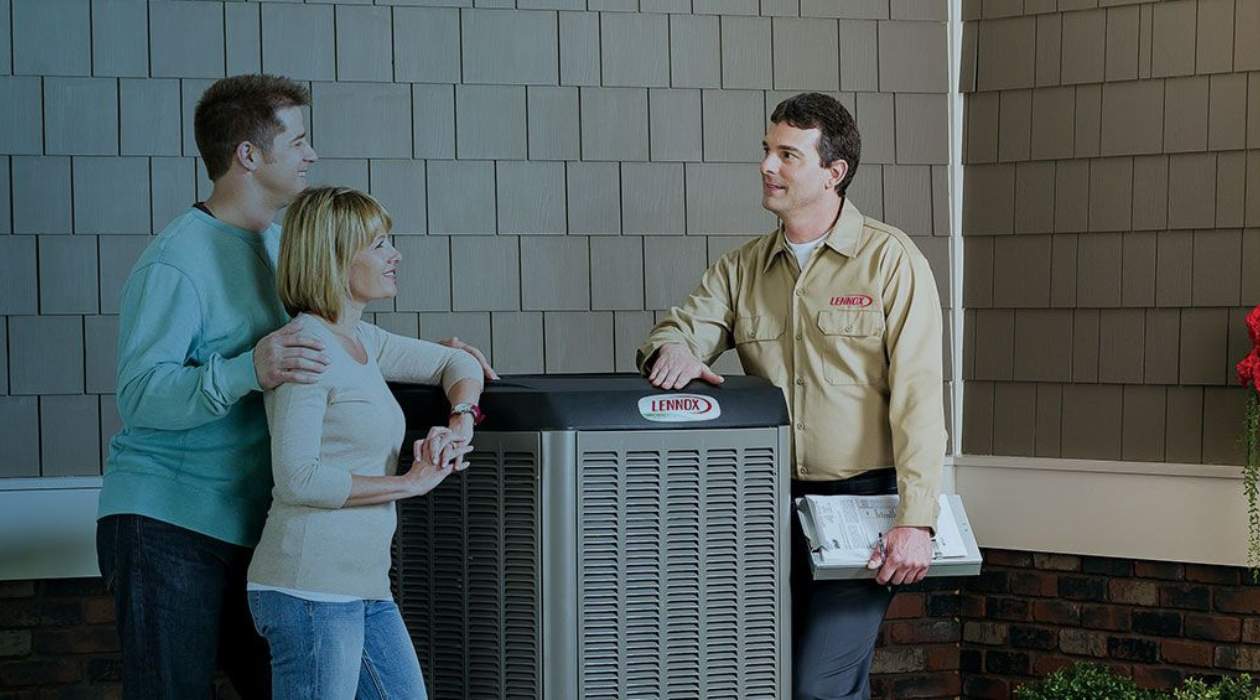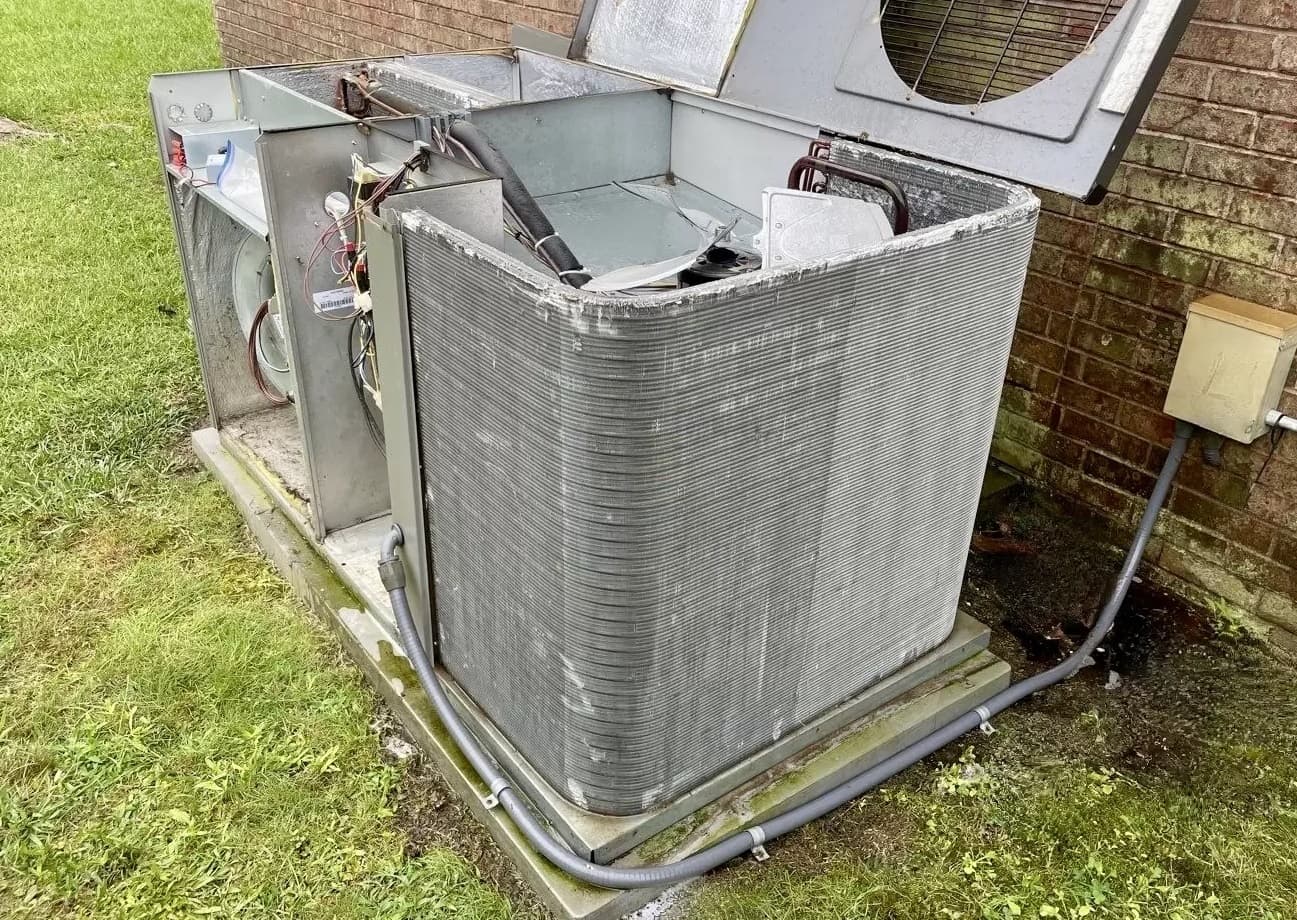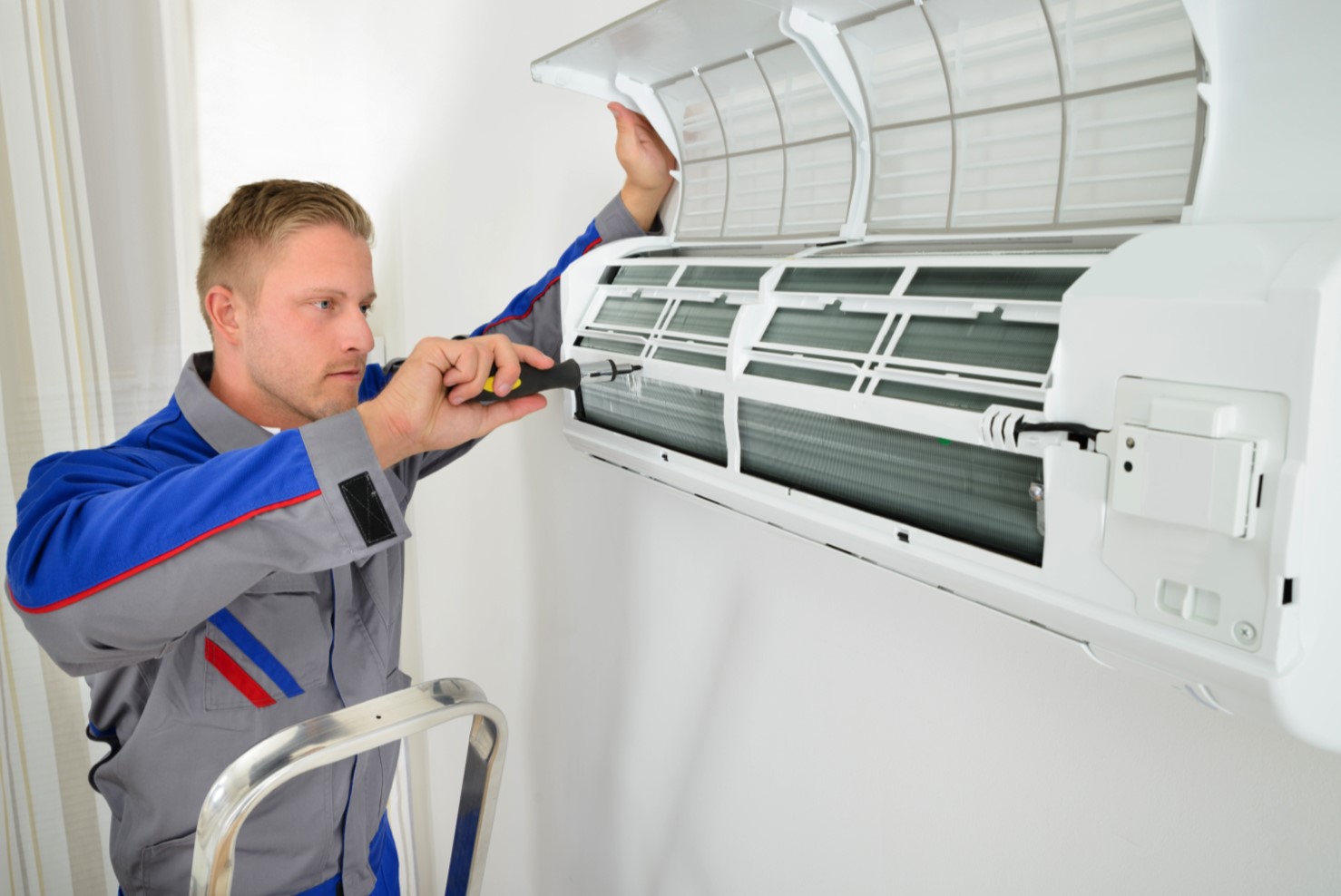Home>Home Maintenance>How Much Does It Cost To Repair An Air Conditioner
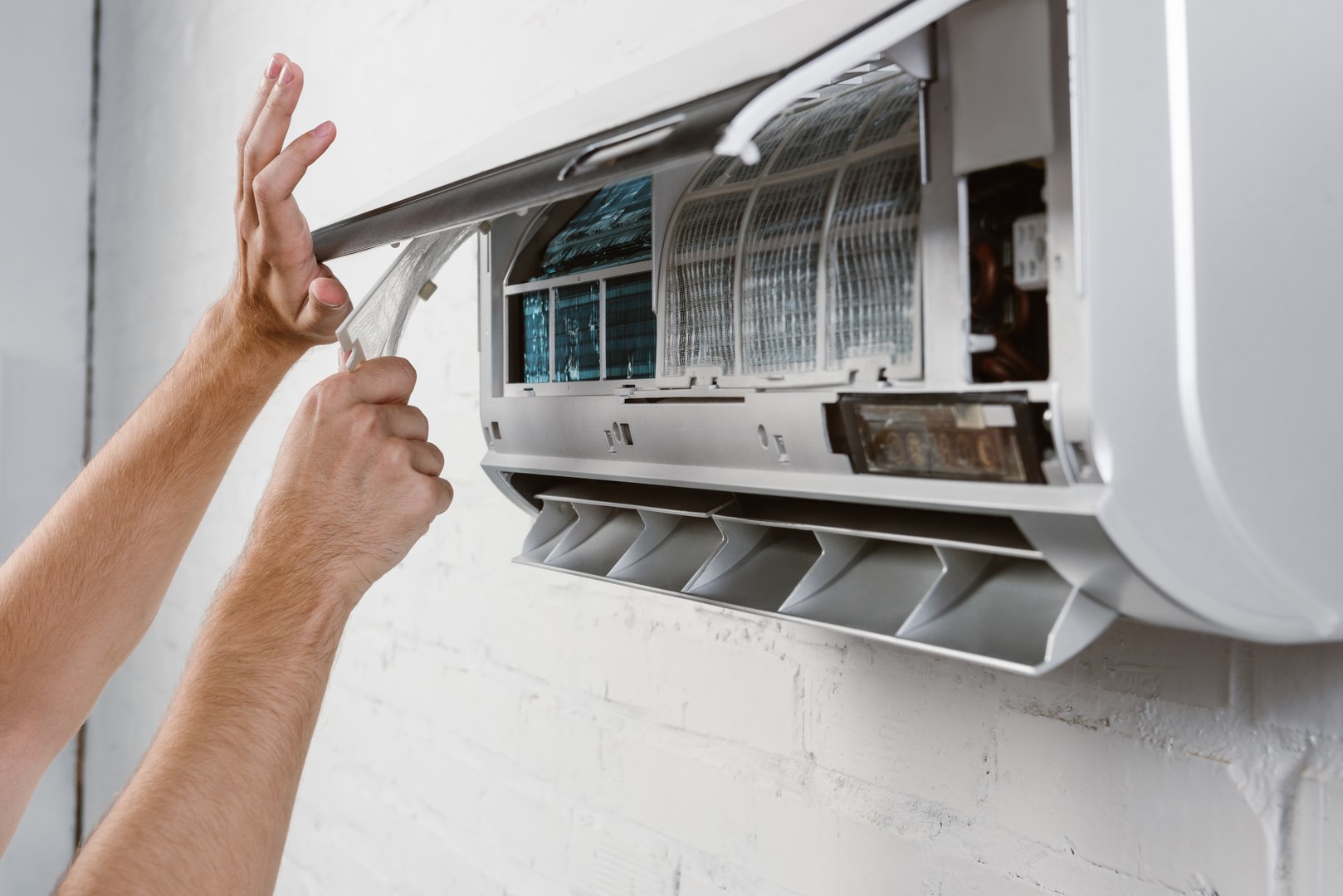

Home Maintenance
How Much Does It Cost To Repair An Air Conditioner
Modified: March 7, 2024
Looking for home maintenance services? Find out the cost to repair your air conditioner and keep your home comfortable with our reliable and affordable solutions.
(Many of the links in this article redirect to a specific reviewed product. Your purchase of these products through affiliate links helps to generate commission for Storables.com, at no extra cost. Learn more)
Introduction
Welcome to the world of home maintenance, where keeping your living space in optimal condition is key to your comfort and well-being. One crucial aspect of home maintenance is ensuring that your air conditioner is functioning efficiently. However, just like any other appliance, air conditioners are prone to wear and tear over time, requiring repairs to keep them running smoothly.
When your air conditioner starts malfunctioning, it’s important to know what to expect in terms of repair costs. To help you navigate the world of air conditioner repairs, we’ve put together this comprehensive guide. We’ll explore the factors that can affect the cost of air conditioner repairs, the types of repairs you may encounter, and provide tips on choosing between hiring a professional or attempting a do-it-yourself (DIY) repair. Additionally, we’ll discuss the average cost of air conditioner repairs and provide some money-saving tips to help you minimize your expenses.
So, whether you’re dealing with a faulty compressor, a refrigerant leak, or a malfunctioning thermostat, sit back, relax, and let’s dive into the intricacies of air conditioner repairs.
Key Takeaways:
- Keep your air conditioner in top shape by scheduling regular maintenance and changing air filters to prevent costly repairs and ensure long-term efficiency.
- Consider hiring a professional for air conditioner repairs to ensure safety, expertise, and long-lasting solutions, ultimately saving you time and money.
Read more: How Much Does An Air Conditioner Cost?
Factors Affecting the Cost of Air Conditioner Repairs
When it comes to the cost of air conditioner repairs, several factors can influence the final price tag. Understanding these factors can help you better anticipate and budget for any necessary repairs. Let’s take a closer look at the key factors that can impact the cost of air conditioner repairs:
- Type of Repair: The specific type of repair needed will play a significant role in determining the cost. Common repairs include fixing a faulty compressor, replacing a broken fan motor, repairing refrigerant leaks, or addressing electrical issues. Complex repairs often require more time, expertise, and parts, which can increase the overall cost.
- Extent of the Problem: The severity and complexity of the issue can affect the cost of repairs. If the problem is relatively minor and can be resolved with a quick fix, such as replacing a small component, the cost will likely be lower. However, if the problem is extensive and requires extensive troubleshooting or replacement of major components, such as the condenser or evaporator coil, the cost will be higher.
- Age and Condition of the Air Conditioner: Older air conditioning systems or units that have been poorly maintained may require more extensive and expensive repairs. Older systems may also have outdated components that are more difficult to source, which can drive up the cost. Additionally, if your air conditioner has experienced significant wear and tear over time, it may require more comprehensive repairs, further increasing the expense.
- Accessibility: The accessibility of your air conditioning unit can impact the cost of repairs. If the unit is easily accessible, such as being located on the ground floor or in an accessible mechanical room, the repair technician will have an easier time reaching and working on the unit. However, if your unit is located in a challenging or hard-to-reach location, such as on a rooftop or in a cramped crawlspace, additional time and effort may be required, resulting in higher repair costs.
- Geographic Location: The cost of air conditioner repairs can vary depending on your geographic location. Different regions may have different average labor rates and cost of living expenses, which can influence the overall cost. Areas with a higher cost of living or a higher demand for air conditioner repairs may have higher prices compared to areas with lower costs.
By considering these factors, you can better understand why the cost of air conditioner repairs can vary and be prepared for potential expenses. It’s important to remember that each repair situation is unique, so the actual cost will depend on the specific circumstances of your repair needs.
Types of Air Conditioner Repairs
Air conditioners are complex systems with various components that work together to provide cool air. When any of these components malfunction, it can disrupt the cooling process and affect your comfort level. Let’s explore some common types of air conditioner repairs you may encounter:
- Compressor Repair: The compressor is like the heart of your air conditioner, responsible for circulating refrigerant and pumping it through the system. If the compressor fails, your air conditioner won’t cool effectively. Compressor repairs can range from replacing faulty electrical connections to replacing the entire compressor unit, depending on the extent of the damage.
- Fan Motor Replacement: Air conditioners have two main fan motors: the condenser fan motor and the evaporator fan motor. If either of these motors fails, it can lead to airflow issues and decreased cooling performance. Replacing a fan motor typically involves removing the old motor and installing a new one, ensuring it is properly connected and functions correctly.
- Refrigerant Leak Repair: Refrigerant is essential for your air conditioner to cool the air. If there’s a refrigerant leak, it not only affects cooling efficiency but can also pose environmental and health risks. Repairing a refrigerant leak involves finding and fixing the source of the leak, recharging the system with the appropriate amount of refrigerant, and ensuring the system is leak-free.
- Thermostat Replacement: A malfunctioning thermostat can make it difficult to control the temperature in your home. Whether it’s a faulty temperature sensor or a complete malfunction, replacing the thermostat involves disconnecting the old unit, installing a new one, and properly configuring it to communicate with your air conditioner.
- Electrical Repairs: Electrical issues can cause your air conditioner to malfunction or not run at all. These repairs can involve checking and replacing damaged wiring, fixing faulty connections, or resolving issues with the electrical control board. It’s crucial to hire a professional technician for electrical repairs to ensure safety and proper execution.
- Cleaning and Maintenance: Regular cleaning and maintenance are vital to keep your air conditioner functioning optimally. This includes cleaning or replacing air filters, cleaning the condenser coil, checking and cleaning the evaporator coil, lubricating moving parts, and inspecting and tightening electrical connections. Proper maintenance can prevent minor issues from becoming major repairs and help prolong the lifespan of your air conditioner.
These are just a few examples of the types of air conditioner repairs you may encounter. Keep in mind that the complexity and cost of the repair will vary depending on the specific issue and the unit’s make and model. If you’re unsure about the type of repair needed, it’s always best to consult with a professional HVAC technician for an accurate diagnosis and appropriate repair solutions.
Common Air Conditioner Problems and Their Repair Costs
As an air conditioner ages or undergoes regular wear and tear, it may develop various issues that require repair. Understanding these common problems and their potential repair costs can help you anticipate the expenses associated with air conditioner repairs. Let’s explore some of the most common air conditioner problems and their corresponding repair costs:
- Refrigerant Leak: A refrigerant leak can cause your air conditioner to lose its cooling efficiency. Detecting and repairing a refrigerant leak involves locating the source of the leak, repairing the damaged part, and recharging the system with the appropriate amount of refrigerant. The cost of repairing a refrigerant leak can range from $200 to $1,500, depending on the severity of the leak and the amount of refrigerant required.
- Faulty Compressor: The compressor is a crucial component that circulates the refrigerant and drives the cooling process. If the compressor fails, your air conditioner won’t cool effectively. Repairing or replacing a faulty compressor is one of the costliest repairs. The repair cost can range from $1,000 to $2,500, depending on the make and model of your unit.
- Condenser Fan Motor Failure: The condenser fan motor helps dissipate heat from the system. If it fails, the air conditioner may not cool efficiently or may not work at all. Replacing a faulty condenser fan motor can cost between $300 and $600, depending on the unit’s specifications.
- Evaporator Coil Issues: The evaporator coil is responsible for absorbing heat from the air, allowing the cooling process to occur. Over time, the coil may become dirty or start to leak. Cleaning a dirty evaporator coil can cost around $100 to $400, while replacing a leaking coil can range from $500 to $1,500, depending on the size and accessibility of the coil.
- Thermostat Malfunction: A malfunctioning thermostat can lead to temperature inconsistencies or a complete inability to control the air conditioner. The cost of replacing a thermostat can vary depending on the type and features of the unit, ranging from $100 to $300.
- Frozen Evaporator Coil: If the evaporator coil becomes too cold, it can freeze and restrict airflow. Several issues, such as a dirty air filter, low refrigerant, or a malfunctioning blower fan, can cause this problem. Repairing a frozen evaporator coil involves diagnosing and fixing the underlying issue, and the repair cost can start at around $200.
Keep in mind that these cost estimates are general guidelines and can vary based on factors such as the severity of the problem, the make and model of your air conditioner, and the labor rates in your area. It’s always best to consult with a professional HVAC technician for an accurate diagnosis and a detailed estimate for your specific repair needs.
Hiring a Professional vs DIY Air Conditioner Repairs
When faced with air conditioner repairs, one important decision you’ll need to make is whether to hire a professional HVAC technician or attempt a do-it-yourself (DIY) repair. While some minor maintenance tasks can be safely performed by homeowners, more complex repairs often require the expertise and experience of a professional. Let’s consider the factors to help you decide between hiring a professional or opting for a DIY air conditioner repair:
- Technical Knowledge: Air conditioner repairs can involve intricate electrical, mechanical, and refrigeration systems. A professional HVAC technician is trained to understand these systems and diagnose problems accurately. They have the technical knowledge and expertise to perform repairs safely and efficiently. If you lack experience or knowledge in these areas, it’s usually best to hire a professional.
- Safety Concerns: Working with electrical components and refrigerants can be dangerous if not handled correctly. HVAC technicians are well-versed in safety protocols and have the necessary equipment to protect themselves and your home during repairs. They are trained to handle hazardous situations, such as refrigerant leaks or electrical malfunctions. Safety should always be a priority, and if you have any concerns, it’s advisable to hire a professional.
- Time and Convenience: Repairing an air conditioner can be time-consuming, especially if you’re unfamiliar with the process. HVAC technicians have the knowledge and tools to efficiently diagnose and repair issues. By hiring a professional, you save yourself the time and effort of researching, troubleshooting, and potentially making costly mistakes. Additionally, professionals can often provide same-day or next-day service, ensuring that your air conditioner is up and running as quickly as possible.
- Warranty and Insurance Coverage: If your air conditioner is still under warranty, attempting a DIY repair may void the warranty. Manufacturers often require repairs to be performed by authorized technicians to ensure that the repair work adheres to specific standards. Additionally, professional HVAC technicians carry liability insurance, providing you with peace of mind in case any damages occur during the repair process.
- Cost Considerations: While DIY repairs may seem cost-effective initially, they can end up being more expensive in the long run. If you make mistakes or misdiagnose the issue, it could lead to further damage or additional repairs. Hiring a professional eliminates the risk of costly errors and ensures that the repair is done correctly the first time. Additionally, professionals have access to wholesale parts and can often obtain them at a lower cost than what you would pay as a homeowner.
Ultimately, the decision to hire a professional or attempt a DIY repair will depend on your comfort level, technical skills, and the complexity of the repair. While simple maintenance tasks like cleaning air filters can be tackled by homeowners, it’s generally advisable to consult with a professional for more complex repairs. A qualified HVAC technician can provide expert advice, ensure safety, and deliver long-lasting repairs that will keep your air conditioner running efficiently.
Regular maintenance can help prevent costly repairs for your air conditioner. Change filters, clean coils, and schedule professional inspections to keep your unit running efficiently.
Read more: How Much Does Chimney Inspection Cost
Factors to Consider When Choosing a Repair Professional
When it comes to air conditioner repairs, finding the right repair professional is crucial. They will have a direct impact on the quality of the repair, the overall cost, and your peace of mind. Here are some important factors to consider when choosing a repair professional:
- Experience and Expertise: Look for a repair professional with several years of experience in the industry. Experience indicates that they have encountered a variety of air conditioner issues and have the knowledge and expertise to handle repairs effectively. Additionally, consider professionals who specialize in air conditioner repairs to ensure they have a deep understanding of these systems.
- Proper Certification and Licensing: Ensure that the repair professional is properly certified and licensed. Proper certification demonstrates that they have undergone the necessary training and testing to perform air conditioner repairs safely and efficiently. Additionally, check if they hold any special certifications from reputable organizations in the HVAC industry.
- Reputation and Reviews: Research the reputation of the repair professional and their company. Check online reviews and testimonials to gather feedback from previous customers. Look for professionals who have consistently positive reviews and a track record of delivering high-quality repairs. You can also ask for references or recommendations from friends, family, or neighbors who have had successful experiences with repair professionals.
- Insurance Coverage: It’s essential to choose a repair professional who carries liability insurance. This insurance protects you, the homeowner, in case of any accidents or damages that may occur during the repair process. Make sure to ask for proof of insurance before hiring a repair professional.
- Response Time and Availability: Air conditioner issues often require prompt attention, especially during hot summer months. Inquire about the repair professional’s response time and availability. Ideally, they should be able to provide quick service to minimize discomfort and inconvenience. Professionals who offer emergency or same-day service can be particularly beneficial in urgent situations.
- Transparent Pricing and Estimates: Ask for a detailed estimate and ensure that the repair professional provides transparent pricing. They should clearly outline the costs associated with labor, parts, and any additional fees. Avoid professionals who provide vague or excessively low estimates, as it may indicate hidden costs or poor-quality repairs.
- Customer Service and Communication: Good customer service and clear communication are essential. The repair professional should be attentive, responsive, and willing to answer your questions or address your concerns. A professional who takes the time to explain the repair process and provides you with options will help you make informed decisions about your air conditioner repairs.
By considering these factors, you can make an informed decision when choosing a repair professional for your air conditioner. Taking the time to find the right professional will ensure that your repair needs are handled by a competent and reliable expert who can restore your air conditioner’s functionality efficiently and effectively.
Average Cost of Air Conditioner Repairs
The cost of air conditioner repairs can vary depending on several factors, including the type of repair needed, the extent of the problem, the age and condition of the air conditioner, and your geographic location. While it’s challenging to provide an exact figure without knowing the specific details of your repair situation, we can provide some average cost ranges for common air conditioner repairs:
- Refrigerant Leak Repair: Repairing a refrigerant leak can cost anywhere from $200 to $1,500, depending on the location and severity of the leak.
- Compressor Replacement: The cost of replacing a faulty compressor can range from $1,000 to $2,500, depending on the make and model of your unit.
- Fan Motor Replacement: Replacing a condenser or evaporator fan motor can cost between $300 and $600, depending on the specific motor and unit requirements.
- Evaporator Coil Repair or Replacement: Repairing a dirty evaporator coil can cost around $100 to $400, while replacing a leaking coil can range from $500 to $1,500.
- Thermostat Replacement: The cost of replacing a thermostat can vary depending on the type and features of the unit, ranging from $100 to $300.
Keep in mind that these cost ranges are rough estimates and can vary based on factors such as the complexity of the repair, the accessibility of the unit, and local labor rates. Minor repairs or simple component replacements may fall on the lower end of the cost range, while more extensive repairs or major component replacements may lean toward the higher end.
It’s worth noting that the cost of repairs shouldn’t be the sole factor in your decision-making process. Opting for a professional repair service that offers quality workmanship and reliable service may be more beneficial in the long run, even if it comes with a slightly higher price tag. Discuss the repair costs and options with your chosen professional, ensuring that you fully understand the breakdown of the expenses.
Lastly, regular maintenance and timely repairs can help minimize the need for major repairs and extend the lifespan of your air conditioner. By scheduling routine maintenance and addressing minor issues promptly, you can potentially avoid more costly repairs down the line.
It’s always advisable to consult with a professional HVAC technician for an accurate diagnosis and a detailed estimate tailored to your specific repair needs. They can provide a customized cost assessment based on the specifics of your air conditioner’s make, model, and repair requirements.
Tips to Save Money on Air Conditioner Repairs
Air conditioner repairs can sometimes come with a hefty price tag, but there are several strategies you can employ to help save money on these repairs. By following these tips, you can keep your air conditioner in good condition without breaking the bank:
- Regular Maintenance: Schedule regular maintenance for your air conditioner to catch potential issues early on. Regular cleaning, filter replacements, and system inspections can prevent minor problems from escalating into major repairs.
- Change Air Filters Regularly: Clean or replace air filters every one to three months, depending on usage. Clogged or dirty filters can restrict airflow and strain the system, potentially leading to increased energy consumption and the need for repairs.
- Keep the Outdoor Unit Clean: Regularly clean the outdoor unit, removing dirt, debris, and vegetation that can obstruct airflow. A clean unit operates more efficiently and reduces the risk of damage to the components.
- Avoid Overworking the System: Set your thermostat to a temperature that is comfortable but not excessively low. Overworking the system can put strain on the components, leading to increased energy consumption and potential breakdowns.
- Ensure Proper Insulation: Properly insulate your home to prevent cool air from escaping and reducing the workload on your air conditioner. Well-insulated homes require less cooling, leading to lower energy bills and potentially reducing the strain on the system.
- Seal Air Leaks: Seal any air leaks in windows, doors, and ductwork to prevent cool air from escaping and warm air from entering. This helps your air conditioner work more efficiently and reduces the need for excess cooling.
- Invest in a Programmable Thermostat: A programmable thermostat allows you to set different temperature schedules based on your daily routines. Adjusting the temperature when you’re away or asleep can help reduce energy consumption and decrease the strain on your air conditioner.
- Research and Compare Repair Quotes: Obtain multiple quotes from different repair professionals to ensure you’re getting a fair price. Be cautious of extremely low quotes, as they may indicate subpar service or the use of low-quality parts. Choose a reputable professional with competitive pricing and a track record of satisfied customers.
- Consider Extended Warranties or Maintenance Plans: Some manufacturers or repair companies offer extended warranties or maintenance plans. While these may come with additional costs, they can provide coverage for future repairs and regular maintenance, potentially saving you money in the long run.
- DIY Maintenance: Perform simple maintenance tasks like cleaning the air filters and keeping the area around the unit clean and clear. However, be cautious and know your limits. Leave more complex repairs to professionals to prevent costly mistakes and potential safety hazards.
By implementing these money-saving tips, you can help keep your air conditioner in good shape, maximize its efficiency, and minimize the need for costly repairs. Remember, proactive maintenance and timely repairs are essential for a long-lasting and reliable air conditioning system.
Conclusion
Maintaining a functional and efficient air conditioner is vital for your comfort and well-being, especially during hot summer months. Understanding the factors that can impact the cost of air conditioner repairs, the types of repairs you may encounter, and the pros and cons of hiring a professional versus attempting DIY repairs, can help you navigate the world of air conditioner maintenance effectively.
Factors such as the type of repair needed, the age and condition of your air conditioner, and your geographic location can all influence the overall cost of repairs. It’s important to consult with a professional HVAC technician for accurate diagnoses and estimates tailored to your specific repair needs.
Choosing the right repair professional is crucial. Consider their experience, certifications, reputation, and responsiveness to ensure that you’re hiring a reliable and skilled individual or company. Prioritize safety, proper certifications, and insurance coverage to protect both yourself and your investment.
While repairs can be costly, there are strategies to save money, such as regular maintenance, proper insulation, and optimizing your thermostat settings. Additionally, research and compare repair quotes to ensure that you’re getting fair pricing without compromising on the quality of service.
Remember, investing in the maintenance and timely repairs of your air conditioner can prevent larger issues down the road and prolong the lifespan of your system. Regularly clean and maintain your unit, change air filters, and address minor issues promptly to prevent major breakdowns and costly repairs.
By following these guidelines and staying proactive with your air conditioner maintenance, you can enjoy a consistently comfortable living space while minimizing the expenses associated with repairs. So take care of your air conditioner, and it will continue to provide you with cool and refreshing air for years to come.
Frequently Asked Questions about How Much Does It Cost To Repair An Air Conditioner
Was this page helpful?
At Storables.com, we guarantee accurate and reliable information. Our content, validated by Expert Board Contributors, is crafted following stringent Editorial Policies. We're committed to providing you with well-researched, expert-backed insights for all your informational needs.
